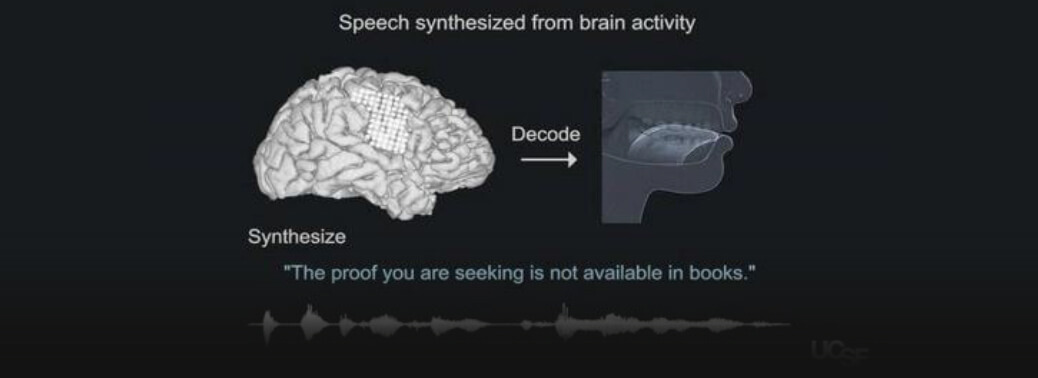SPEAK YOUR MIND: BRAIN IMPLANT TRANSLATES THOUGHT TO SPEECH
26, Apr 2019

Prelims level : Science and Technology
Mains level : Science and Technology development and their Applications
Why in News:
- Scientists have developed a virtual prosthetic voice, a system that decodes the brain’s vocal intentions and translates them into mostly understandable speech, with no need to move a muscle, even those in the mouth.
Details:
- People unable to communicate due to injury or brain damage may one day speak again, scientists unveiled a revolutionary implant that decodes words directly from a person’s thoughts. Several neurological conditions can ruin a patient’s ability to articulate, and many currently rely on communication devices that use head or eye movements to spell out words one painstaking letter at a time. The new system decipher the brain’s motor commands guiding vocal movement during speech, the tap of the tongue, the narrowing of the lips and generates intelligible sentences that approximate a speaker’s natural cadence.
- Before operating, doctors must first locate the “hot spot” in each person’s brain where the seizures originate, this is done with electrodes that are placed in the brain, or on its surface, and listen for tell-tale electrical storms. Participants are recited hundreds of sentences; the electrodes recorded the firing patterns of neurons in the motor cortex. The researchers associated those patterns with the subtle movements of the patient’s lips, tongue, larynx and jaw that occur during natural speech. Then translated movements are changed into spoken sentences.
- A synthesized voice system based on one person’s brain activity could be used, and adapted, by someone else as an indication that off-the-shelf virtual systems could be available.
Problems:
- Strokes that disable a person’s speech often also damage or wipe out the areas of the brain that support speech articulation.






